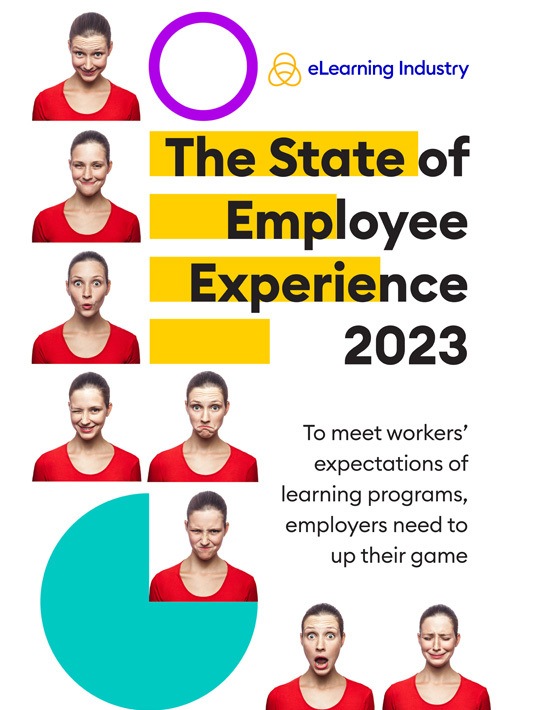How Can Continuous Learning Advance Your Employees' Careers?
Every modern business realizes sooner or later that investing in the employees' professional growth is a top priority. The job market has become highly competitive, and employees are always searching for ways to develop their skills and gain new knowledge. This search never stops; continuous learning is crucial for anyone who wants to be up to date with the latest trends in their industry and achieve their full potential. Below, you'll discover how continuous learning in the workplace benefits your business and its workforce, and how you can put it into practice.

7 Benefits Of Continuous Learning In The Workplace
1. Job Satisfaction
Employees with opportunities to develop their skills and expand their knowledge are more motivated to become high performers. When your company invests in ongoing training, employees feel that you value their work, increasing job satisfaction scores.
2. Improved Productivity
A skilled workforce with knowledge in their field will be more efficient and produce higher-quality work. Your employees' productivity isn't going to be as affected by complex tasks because they'll know how to navigate them by applying their new skills and capabilities. Additionally, by learning new technologies, they can streamline most of their tasks, doing more work in less time. Satisfied employees also tend to be more productive because there's a sense of loyalty to your company.
3. Job Security
Continuous learning in the workplace equips employees with valuable knowledge and makes them competitive in the job market. As a result, they feel more secure in their positions and know that they have what your organization needs to achieve its objectives. Skilled employees are also more prepared for changes in job roles and responsibilities and can adapt more easily. This makes them more likely to advance in their careers within the organization and receive more promotions, higher pay, and better career prospects.
4. Employee Retention
Losing your employees can be costly since you spend time scouting job candidates, conducting interviews, and training new hires. By offering your workforce opportunities for continuous learning, they're less likely to look elsewhere for employment opportunities. Instead, employees work towards the company's success and feel more committed to your brand.
5. Innovation And Creativity
With a wider set of skills and experience, employees will approach every challenge in the workplace with a fresh perspective. Since they'll be familiar with the latest technologies and techniques, they'll bring new ideas to the table and be more comfortable using the latest equipment and tools, thus providing alternative solutions to make everyone's job easier. This process may even reveal hidden gems among your workforce that haven't shown their potential yet.
6. Communication And Collaboration
Collaboration among employees from different departments and teams becomes easier if your people learn new things on a regular basis. For example, it would be easier for your marketing team to collaborate with the IT department if they had basic knowledge of terms and company policies. This can lead to more effective communication and seamless cooperation between your employees.
7. Enhanced Reputation
Skilled employees produce quality work, which results in happy customers and increased revenue. This creates a better reputation for your company, which can attract more sales and broaden your customer base. Additionally, if your company is known for its continuous learning culture, it brings in more prospective employees, giving you a competitive advantage in the demanding market.
How To Practice Continuous Learning In The Workplace
Set Learning Goals
The first step in practicing continuous learning in your workplace is to define which employees are going to attend which L&D initiatives. For instance, your marketing department could benefit from a new digital marketing trend online course, while your sales team could do a workshop about conflict resolution. Each team's and employee's needs are different, and a detailed plan will help you keep track of their progress and performance. Make sure to set a training deadline so that your goals are time-bound.
Conferences
Conferences are great opportunities for your employees to do some networking while also learning important things about their field. They can meet experts in the industry, get tips from people with similar job roles, and benefit from different opinions and fresh ideas.
Mentoring
You can organize mentorship programs in your company, pairing seasoned employees with their less experienced peers. Through these programs, your employees can receive guidance and help for challenges they face in the workplace while also gaining a better understanding of their roles and the industry as a whole.
Technology For Learning Support
Apart from online courses, you can also use webinars, eBooks, articles, apps, and podcasts to launch a continuous learning program using minimal resources. These are also flexible options that provide your employees with moment-of-need support. Another option is to invest in an LMS to deploy and track your continuous training programs.
Conclusion
Continuous learning is a great way for companies to show how much they appreciate their employees' hard work and how they value their professional development. By investing in your workforce's personal growth, you ensure that your company stays competitive in the market and that your employees gain all the necessary skills to thrive in their careers and contribute to the company's overall success.









